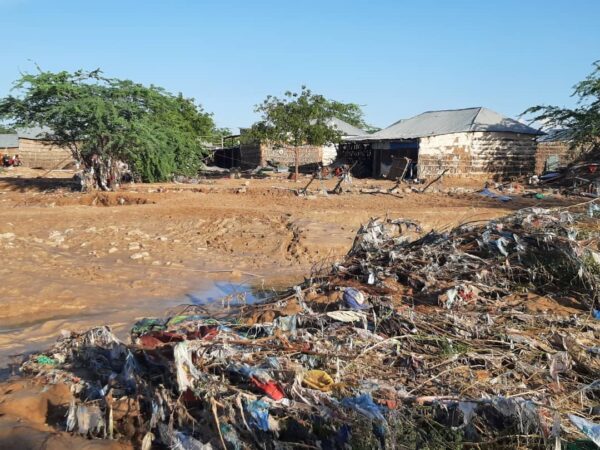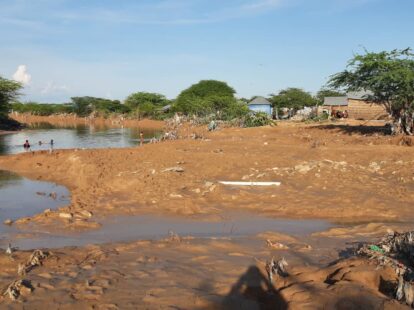
More than 8,000 people have been displaced in Somalia’s southern Gedo region after heavy rains triggered flash flooding last week.
Flooding is an annual event in Gedo, but this year the rains arrived much earlier, leading to widespread destruction of property, farmlands and temporary shelters.
At least 14 individuals have been killed by the devastating floods so far, according to the United Nations Office for the Coordination of Humanitarian Affairs (OCHA).
Struggling to cope
The flooding comes as humanitarian agencies are struggling to cope with a widespread outbreak of disease, including diarrhoea, cholera, and measles. There is now major concern that the outbreaks will severely worsen amid displacement and disruption of safe drinking water supplies following the flooding.
Despite the flooding, and the arrival of the rainy season, Gedo, and Somalia as a whole, continues to endure a crippling drought which is affecting much of the Horn of Africa.
More than 43,000 people are reported to have died last year in Somalia as a result of the drought and hunger crisis – the worst Somalia has faced in more than 70 years. Thousands more people are expected to die in the coming months unless urgent aid can be delivered.
While the flooding is currently highly localised and limited to regions nearest to the Juba River, heavy rainfall is expected to continue.
Despite the heavy rains, the coming rainy season is predicted to be drier than usual, prolonging the drought and pushing more families to the brink.
“This rain does not indicate the end of the drought”
Aliow Mohammed, Islamic Relief’s Country Director in Somalia, has seen firsthand the devastation caused by the floods:
“Many of the affected people are already displaced and fled here to try and escape the drought after their cattle and crops died. They’ve been living in basic makeshift camps, and now even those flimsy shelters have been washed away along with the few possessions they still own.
 “Whilst this rainfall is extreme and brings some minor respite from the drought, it is also highly localised. This rain does not indicate the end of the drought, which requires sustained rain.
“Whilst this rainfall is extreme and brings some minor respite from the drought, it is also highly localised. This rain does not indicate the end of the drought, which requires sustained rain.
“There’s a high risk of outbreaks of water-borne diseases like acute watery diarrhoea, which is deadly and can spread rapidly in such basic, crowded conditions. As the water stagnates, we also fear a rise in malaria. There are already lots of mosquitoes and people don’t have anything to protect their children.”
Islamic Relief is on the ground assisting those affected by the flooding. We are providing cash to those affected by the flooding, along with emergency shelter, including plastic sheeting. We are also transporting safe drinking water and constructing temporary shelters to support 5,000 displaced people.
We are also coordinating with other major humanitarian organisations operating internationally to launch a collaborative fund that will allow us to respond to the crisis.
Islamic Relief has been operating in Gedo since 2020, providing support to displaced families, many of whom were already struggling in temporary shelters in overcrowded settlements before the flooding began.







